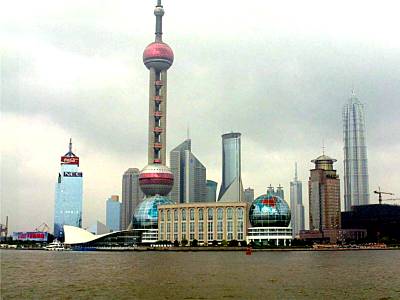|
Week of November 5, 2001 Blockbuster Deal of the Week from Site Selection's exclusive New Plant database |
|
Expansion within a Layoff: Hitachi's
660-Employee Plant Headed for China  By JACK LYNE
By JACK LYNESite Selection Executive Editor of Interactive Publishing
WUHU, China -- "One man's ceiling is another man's floor," Paul Simon once sang.
Change the word man's to area's and you have one of business location's more enduring golden oldies. To wit, one area's loss can often turn out to be another area's win.
That hard-edged truism is partially reflected in this week's spotlight deal: In the midst a major layoff, Hitachi (www.hitachi.com) has announced that it will build a new 660-employe room air-conditioner plant in Wuhu in midwest China. The plant will be part of a newly formed company, Hitachi Household Appliance (Wuhu). Scheduled to go online in November 2002, the US$28.2 million plant will have an annual capacity of 300,000 units. Though Wuhu's population is some 553,000, Anhui and its neighboring
provinces account for 500 million people, 40 percent China's total. The Wuhu plant announcement comes after Hitachi's late-summer announcement that "the number of employees will be reduced by around 14,700 by the end of fiscal 2001" (which falls on March 31, 2002). The 14,700 cuts constitute some 4 percent of the 341,000 employees of Japan's largest comprehensive electrical machinery maker. The layoffs had a particular sting for the Tokyo-based giant. The lion's share of the axed positions - 10,200 - will be in Japan. (The other 4,500 will be in Europe and Singapore, Hitachi said.) Low-Profile Project Publicity The Japan-heavy layoffs may have accounted in part for Hitachi's low-profile tack in publicizing the Wuhu project. The company issued only a single brief statement that contained no Hitachi executives' names or quotes.The Wuhu plant has a direct connection to the layoffs. In its "emergency management measures" unveiled on Aug. 31, Hitachi announced that it was shifting the production of its consumer products and digital media to China and Indonesia to capitalize on cheaper labor. "In fiscal 2000, overseas operations accounted for 26 percent of the business of the Consumer Products Group. Hitachi plans to increase this figure to 40 percent by fiscal 2001," the company said in its Wuhu project statement. The new plant in Wuhu is the first step in Hitachi's relocation of more of its consumer products unit outside of Japan. And the air-conditioner plant is only the beginning of Hitachi's investment in Wuhu. "The new company is being established as a future global manufacturing base," Hitachi said. Hitachi's emergency measures came after the company issued a profit warning that revised its fiscal 2001 forecast from a $786 million profit to a $1.25 billion loss. China, Japan Target Markets The Wuhu project is apparently unrelated to a trade dustup between Japan and China. China this summer slapped 100 percent tariffs on imports of Japanese air-conditioners, automobiles and mobile phones.Hitachi, however, doesn't currently import air-conditioners into China. And the Wuhu plant will tap a new market for Hitachi's 22 Chinese companies. The Hitachi group owns 60 percent of Shanghai Hitachi Household Appliances (SHHA), a joint venture manufacturing air-conditioners. But the SHHA's 400,000 annual units are higher-end models such as inverter and package types. The Wuhu plant will instead target China's growing mass market for low-cost room air-conditioners. That market is forecast at 9.5 million for 2001 "and is expected to rise by double digits annually," Hitachi said. Only half of the Wuhu plant's low-cost air-conditioners, however, will be for the Chinese market. The other half of the plant's output will be exported to Japan. "Hitachi Household Appliances (Wuhu) Co. . . . will strengthen Hitachi's cost-competitiveness with low-priced, volume-zone models in the China and Japan markets," Hitachi explained. 
Lower Wages, By dint of location, Wuhu could also offer more subsidies. Said Hitachi: "Locating the new company in the Anhui province makes Hitachi eligible for incentives related to developing the midwestern region, making it possible to further reduce costs." Wuhu's lower wages in comparison with Shanghai (pictured above) were one reason why Hitachi picked the site in Anhui province.
Location Provides Access to 40 Anhui province, for example, links both east China to west China and south China to north China. That provides access to a vast market. Though the population of Wuhu proper is some 553,000, Anhui and its neighboring provinces account for 500 million people, 40 percent China's total. Located on the Yangtze River, the city also offers an extensive multimodal transportation network. Ironically, Hitachi's lower-cost location is part of an economy that has been one of the strongest in the current slowdown. China's economy grew by a bullish 7.9 percent in the first half of 2001. Anhui has been a leader in China's economic surge. The province's GDP has grown by almost 29 percent a year since the mid-1990s.
©2001 Conway Data, Inc. All rights reserved. Data is from many sources and is not warranted to be accurate or current.
|